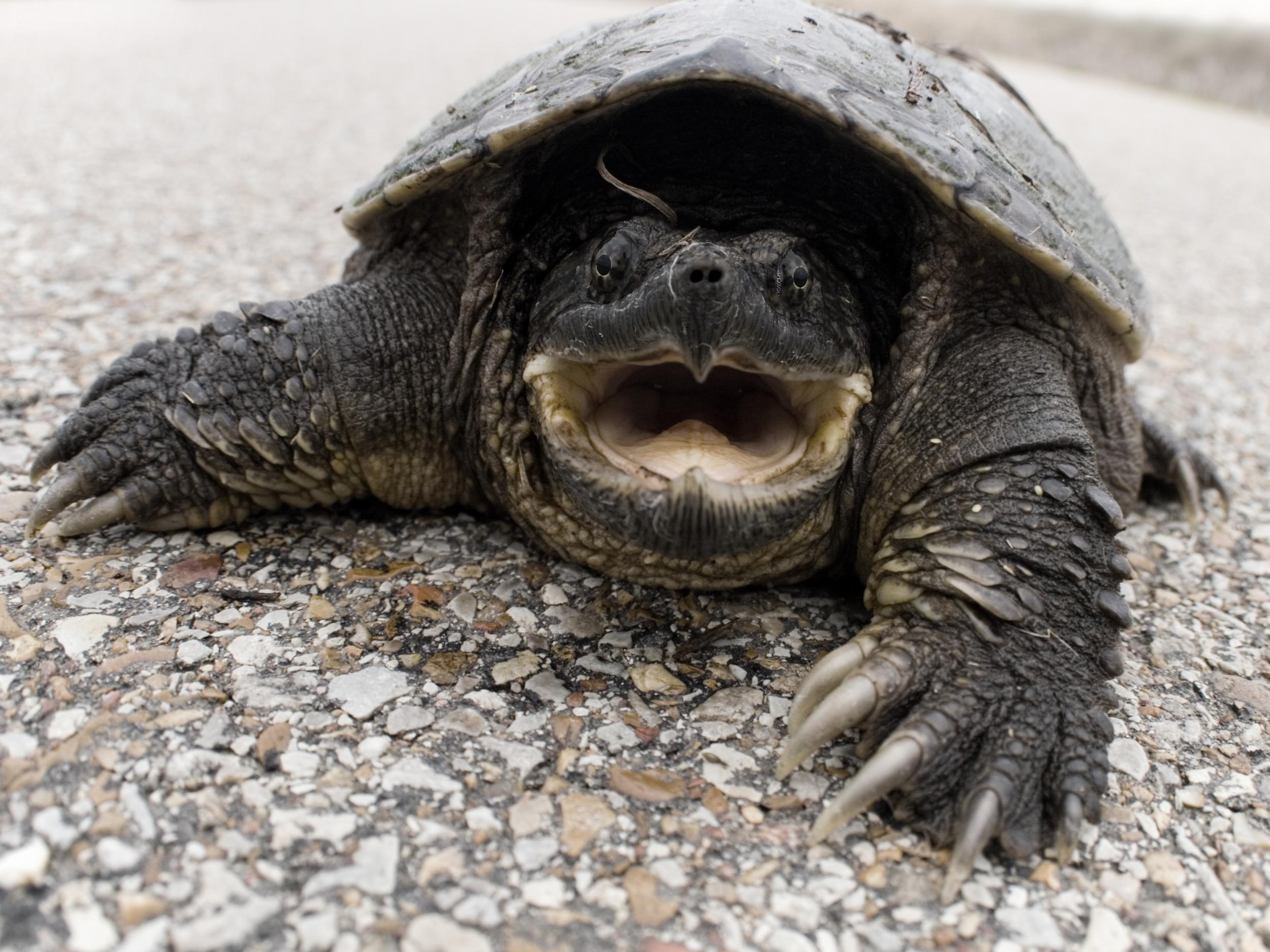Mercury pollution causing more snapping turtles to be born male than female
Environmental changes caused by humans are leading to skewed sex ratios in Virginia reptiles

Agricultural practices and mercury pollution in the US are causing more and more snapping turtles to be born male.
Unlike humans, turtle sex is determined by the conditions their eggs develop in, such as temperature.
While global warming has led to an excess of female sea turtles in the Pacific Ocean, environmental factors in Virginia are having the opposite effect on snapping turtles in the US – causing more males to be born than females.
Specifically, a team of scientists found that the cooling effect of agricultural land use combined with the chemical effects of mercury pollution influenced baby turtle demographics.
“Our work illustrates how routine human activities can have unexpected side effects for wildlife,” said Professor William Hopkins, a wildlife conservation expert at Virginia Tech, who oversaw the study.
“We found strong masculinising shifts in sex ratios caused by the interaction of two of the most common global changes on the planet, pollution and crop agriculture.”
Cooler nests mean more males for snapping turtles. When building their nests, female turtles gravitate towards agricultural land in the early summer when fields are open and sunny – but the study by Professor Hopkins and his colleagues suggests this is a bad move.

“Our results indicate that turtles are attracted away from natural nesting habitat into agricultural habitats, and this decision has undesirable consequences for their reproductive success,” said Professor Hopkins.
As dense crops sprout up quickly throughout the summer, they rapidly shade the turtles' nests, resulting in skewed sex ratios.
The researchers also found that this effect was exacerbated by mercury, which is a major pollutant along the South River in Virginia due to leaks from a nearby manufacturing plant from 1929 to 1959.
Mercury is known to affect reptile reproduction, but the Virginia scientists found for the first time that it also specifically impacts the sex ratio of eggs.
They found that higher levels of mercury in the blood or turtle mothers corresponded to clutches in which more males were born – adding to the effect of temperature on sex.
These findings were published in the journal Biological Conservation.
“Turtle populations are sensitive to male-biased sex ratios, which could lead to population declines,” said Professor Hopkins.
“These unexpected interactions raise new, serious concerns about how wildlife responds to environmental changes due to human activities.
“They also add an extra layer of complexity to current projections of climate change.”
Join our commenting forum
Join thought-provoking conversations, follow other Independent readers and see their replies
Comments
Bookmark popover
Removed from bookmarks